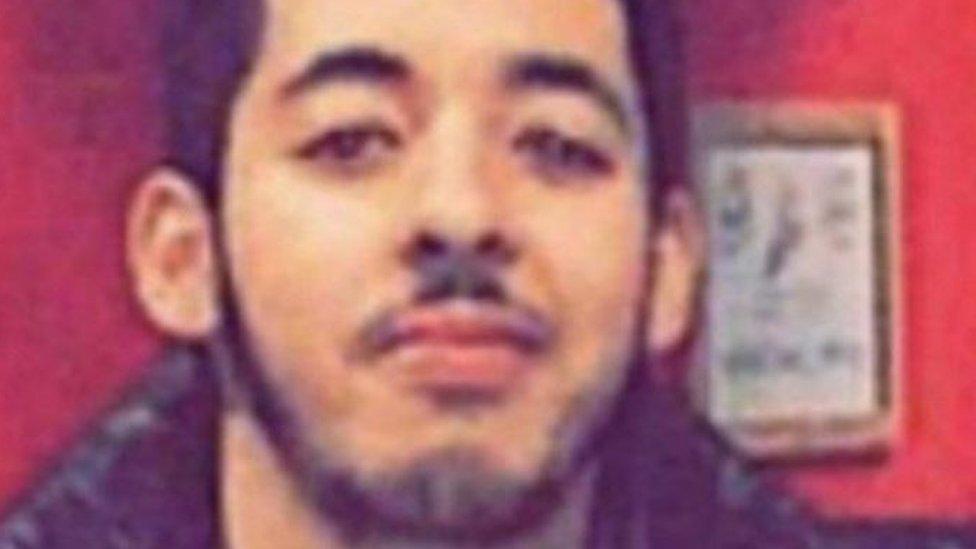Manchester Arena Inquiry: Families ask if lives could have been saved
- Published

Top row (left to right): Alison Howe, Martyn Hett, Lisa Lees, Courtney Boyle, Eilidh MacLeod, Elaine McIver, Georgina Callander, Jane Tweddle - Middle row (left to right): John Atkinson, Kelly Brewster, Liam Curry, Chloe Rutherford, Marcin Klis, Angelika Klis, Megan Hurley, Michelle Kiss - Bottom row (left to right): Nell Jones, Olivia Campbell-Hardy, Philip Tron, Saffie-Rose Roussos, Sorrell Leczkowski, Wendy Fawell
Families of the victims of the Manchester Arena bomb want to know why emergency services were slow to respond and whether the delay had cost lives.
Twenty-two people were killed and hundreds more injured when Salman Abedi detonated a suicide bomb in May 2017.
The inquiry heard John Atkinson was not treated for nearly 50 minutes and his relatives want to know whether he could have been saved by a quicker response.
Families have also criticised security services and the arena's security.
'We need ambulances'
The inquiry at Manchester Magistrates' Court was hearing the opening statements from legal teams representing some of the families of the victims.
John Cooper QC representing 11 families said they also wanted answers about why security services did not do more to stop Abedi carrying out the attack.
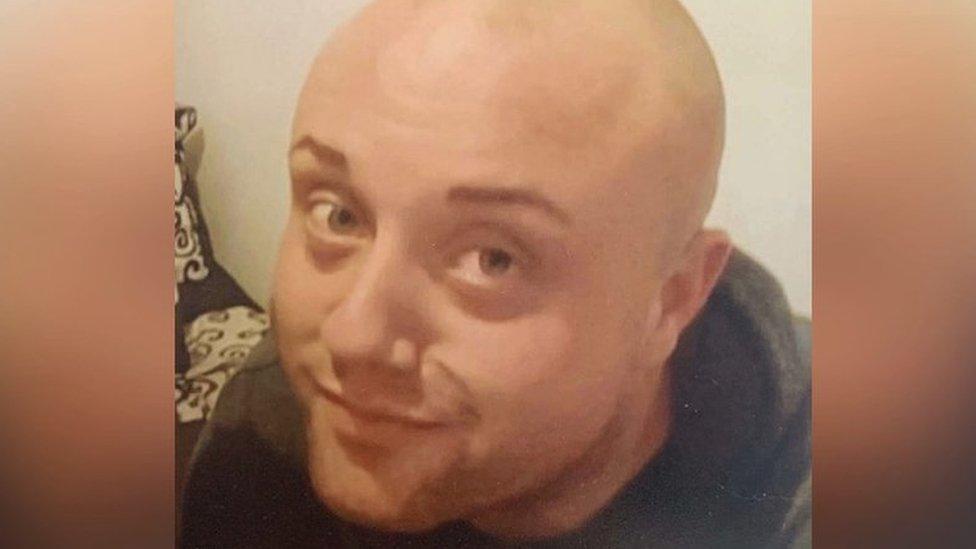
John Atkinson was not treated for almost 50 minutes, the inquiry heard
He said the UK threat level at the time of the attack was "severe" so it should have come as "no surprise" to the emergency services when something happened.
The families need to know why then there was only one paramedic in the foyer of the arena assessing the dead and injured for 40 minutes after the explosion, he said.
One PC was captured on bodycam saying: "We need ambulances... massively", Mr Cooper said.
"We need paramedics like... yesterday."
No stretchers
Mr Cooper said another PC was heard asking: "I know it's a daft question but are ambulances coming?"
Mr Cooper told the inquiry how 28-year-old Mr Atkinson, from Radcliffe, Greater Manchester was left untreated for nearly 50 minutes.
The inquiry heard when he was seen by a paramedic, Mr Atkinson said: "I'm going to die, aren't I?"
The paramedic responded: "Not on my watch you're not."
There were no stretchers and the inquiry heard he was carried away conscious and "desperately" hanging on to a "pathetically inadequate" makeshift cardboard advertising board, which collapsed causing him to fall on to a metal barrier.
Mr Atkinson - described as a "perfect son" in his pen portrait - later died.
Mr Cooper also demanded to know why the fire service played no meaningful role in the response for two hours, despite being told about the attack within three minutes.
"It is vitally important lessons which need to be learned are learned and well learned," he said.
"Because the track record of many organisations we may hear from... charged with keeping us safe do not learn lessons and do not heed warnings."
Mr Cooper referred to a counter-terrorism exercise codenamed the Winchester Accord at the Trafford Centre a year before the arena bomb as an example.
It had flagged up poor communication and "significant delays" in responses, he said.
Pete Weatherby QC who is representing seven other families, also said: "The arena is one of the largest indoor arenas in the world therefore its potential as a target was obvious."
'Mosaic of evidence'
He said families need to know whether "lives were lost unnecessarily" and if the security services could and should have done more to stop Abedi, saying he "did not come out of nowhere".
He said there was a "mosaic of evidence" which should have triggered scrutiny against Abedi; he had "a radicalised family", links with known terrorists, was travelling to and from Libya, had sourced a large amount of chemicals online and an email with an Isis slogan.
It was "hardly a well-crafted covert plot," he said.
Mr Weatherby also criticised the arena's security, saying Abedi "wandered around for almost an hour unchallenged" and "had worked out the raised area was not covered by CCTV and it was not patrolled" which were "catastrophic failures".
The public inquiry follows the conviction of Abedi's brother Hashem for helping his brother plan the atrocity. He was jailed for at least 55 years in August for the murders of 22 people.
Chairman of the inquiry Sir John Saunders, opened the inquiry by saying "this is an exercise in establishing the truth".
He will make a report and recommendations once all the evidence has been heard by the inquiry, which is expected to take up to six months.
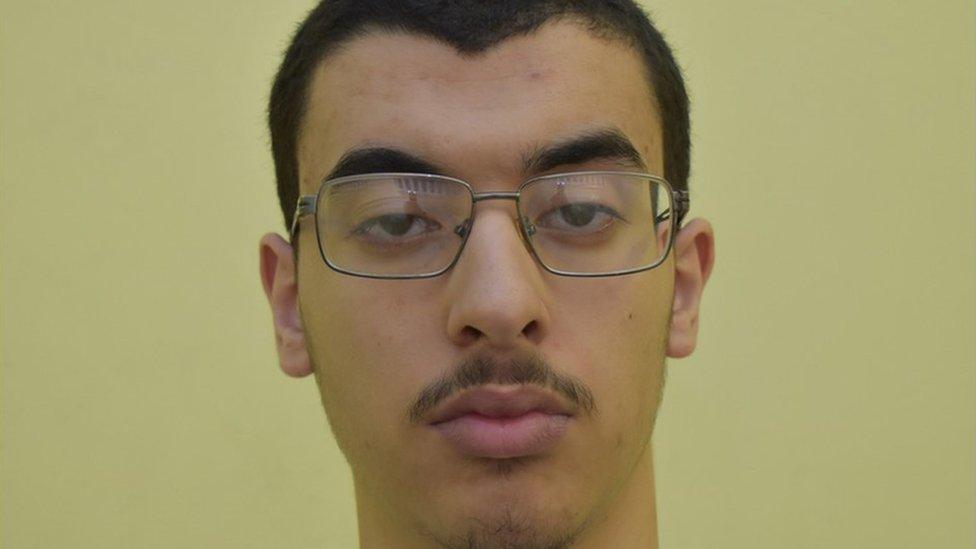
Hashem Abedi was jailed for 55 years for the murders of 22 people

Why not follow BBC North West on Facebook, external, Twitter, external and Instagram, external? You can also send story ideas to northwest.newsonline@bbc.co.uk, external
Related topics
- Published9 September 2020
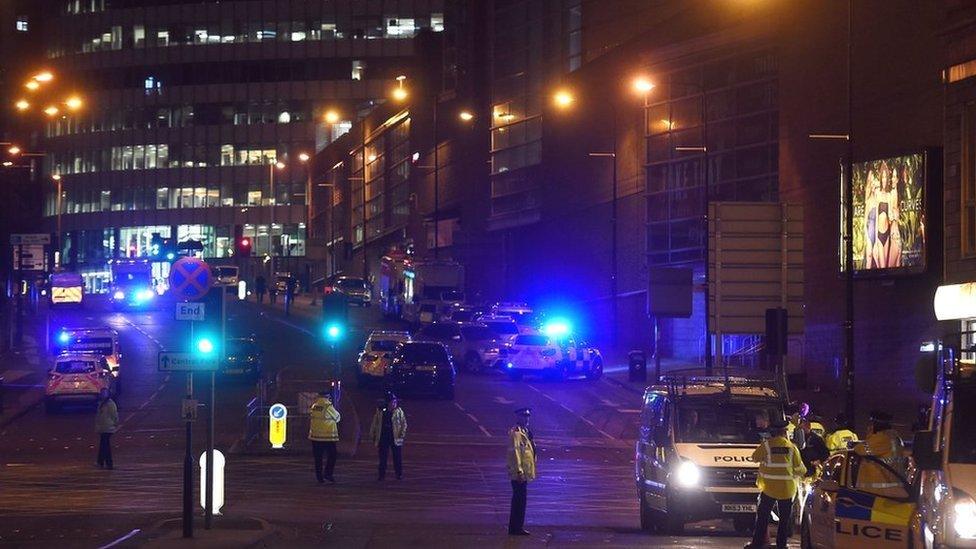
- Published8 September 2020
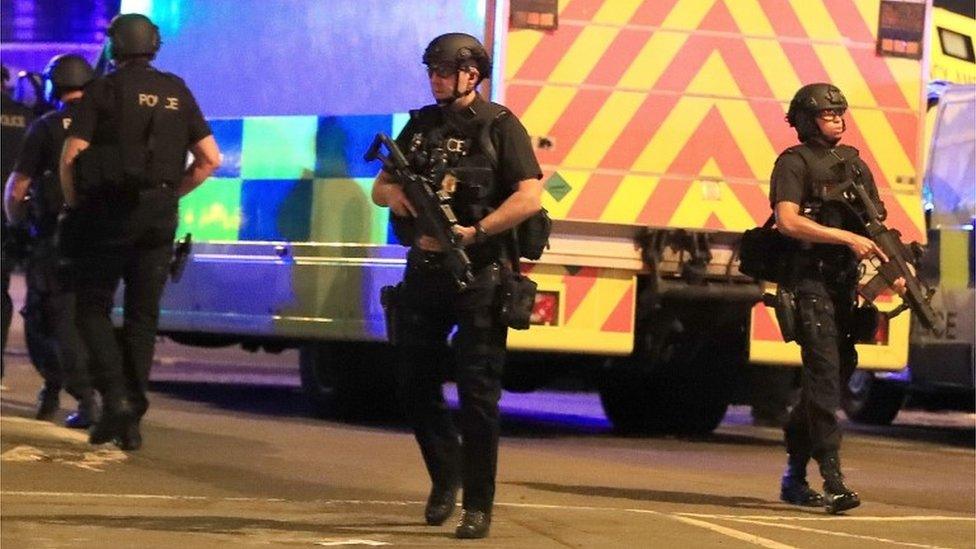
- Published7 September 2020
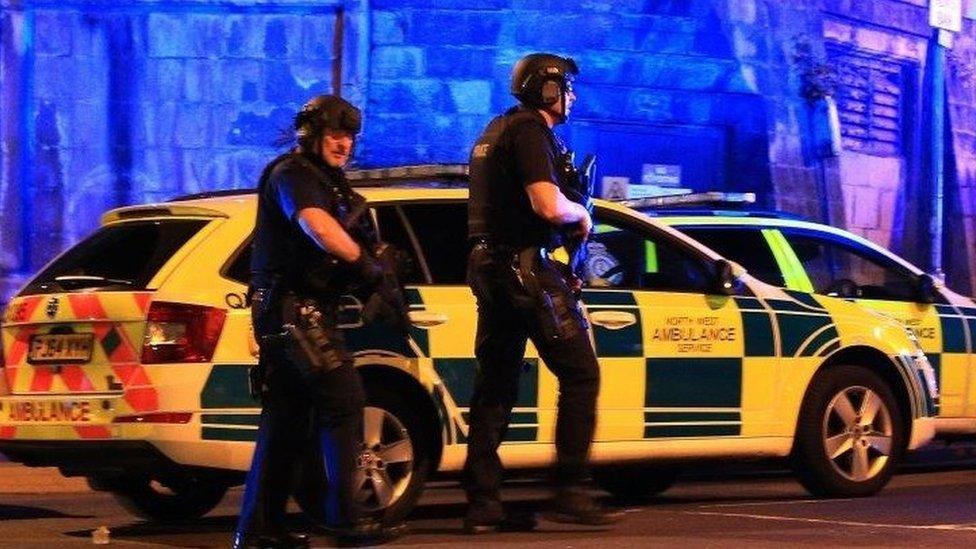
- Published22 September 2020
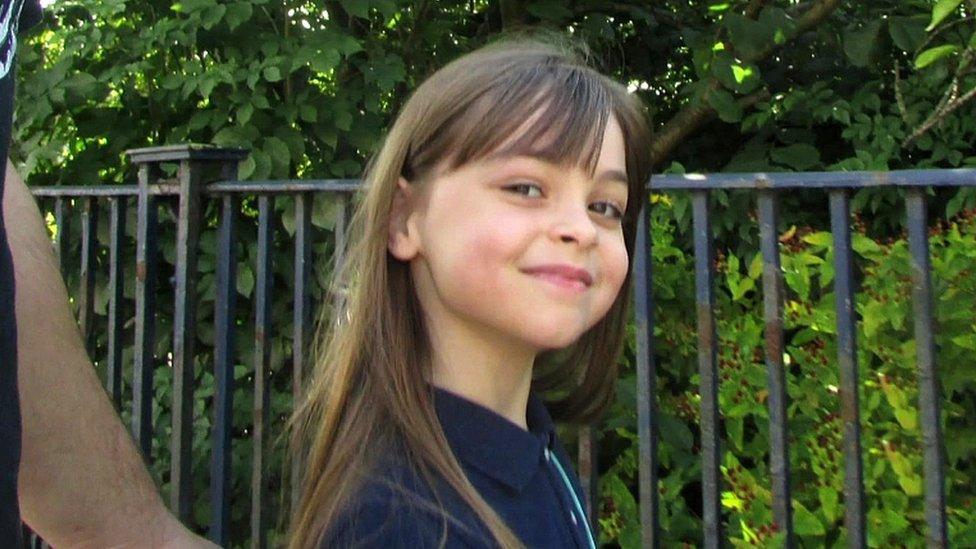
- Published6 September 2020
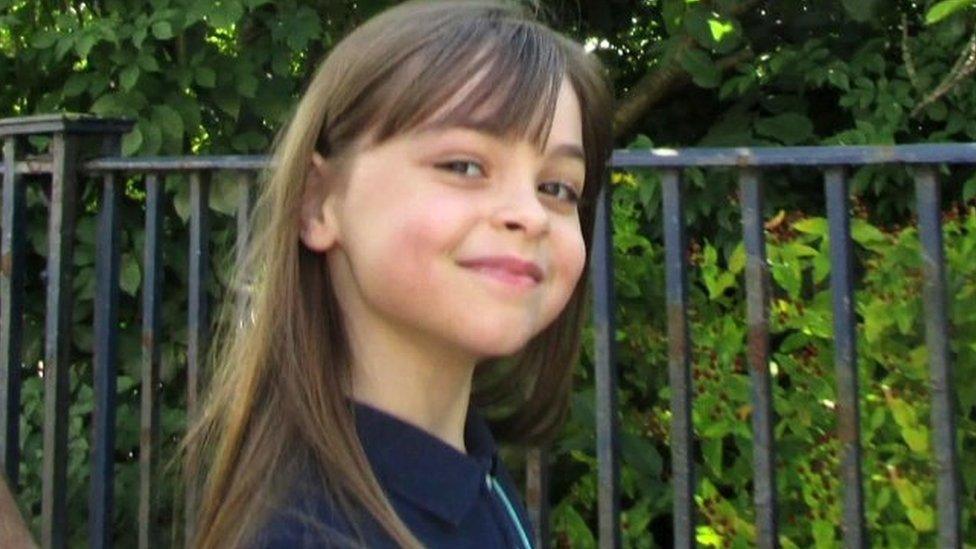
- Published20 August 2020
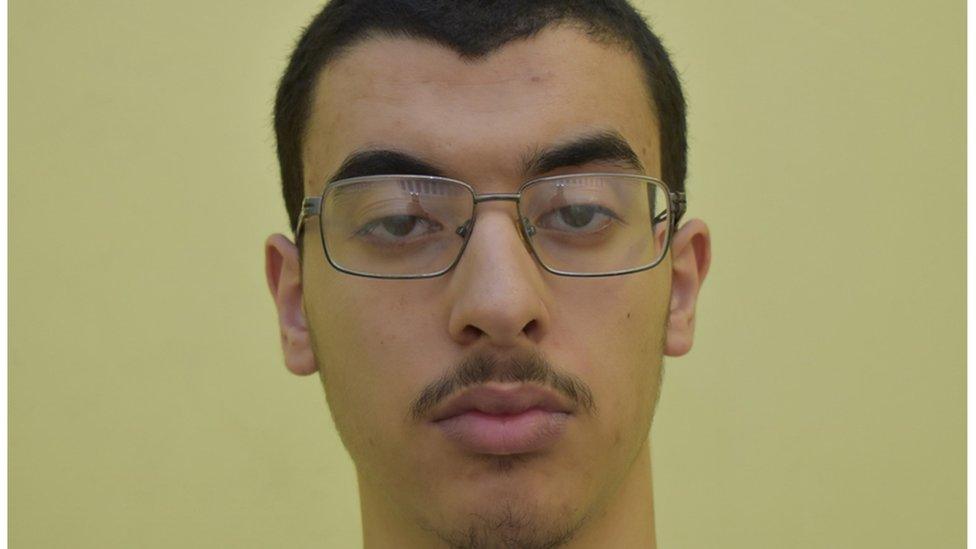
- Published20 August 2020
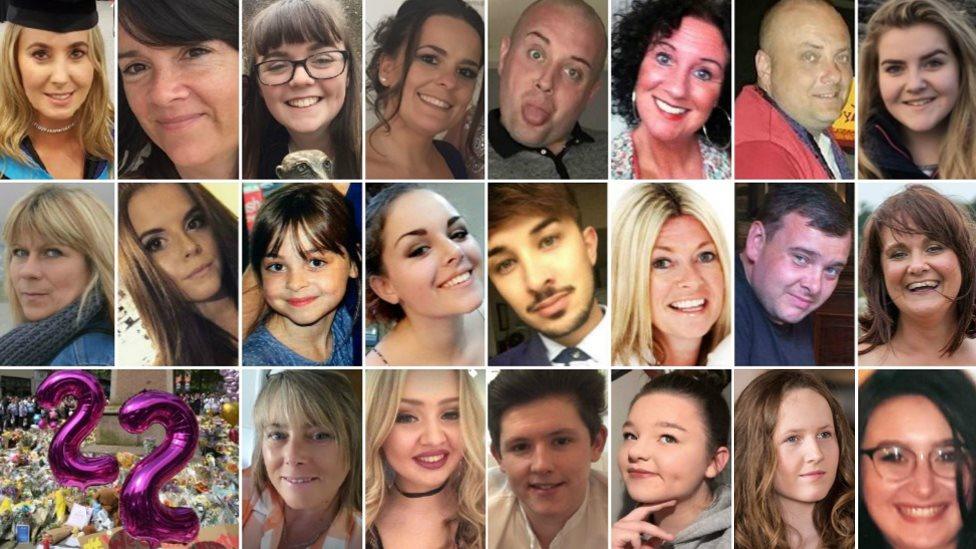
- Published9 July 2020

- Published22 May 2020
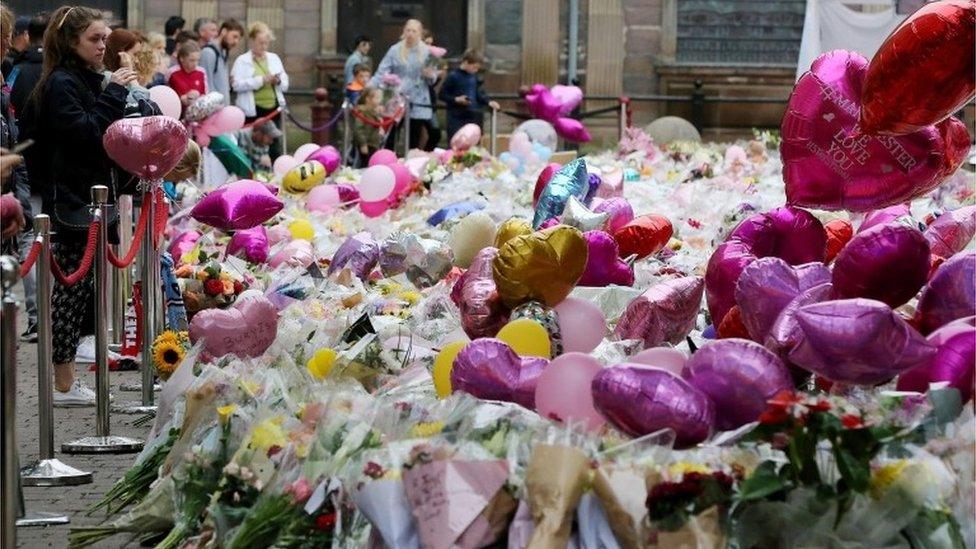
- Published18 May 2020
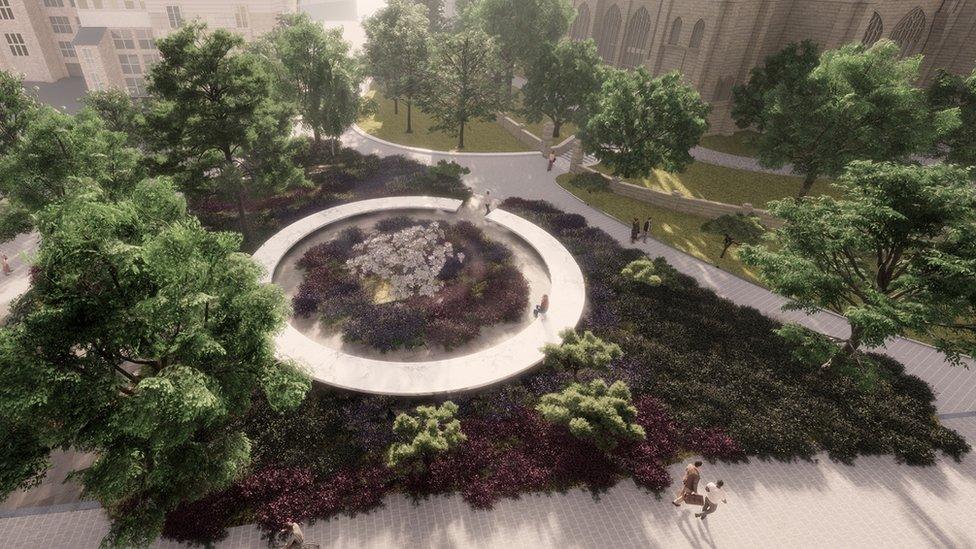
- Published27 March 2018
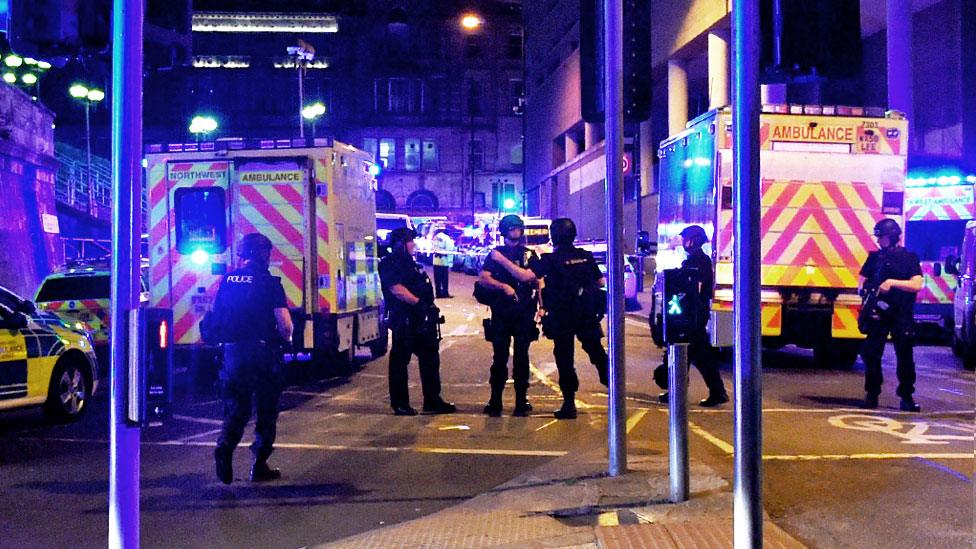
- Published12 June 2017
